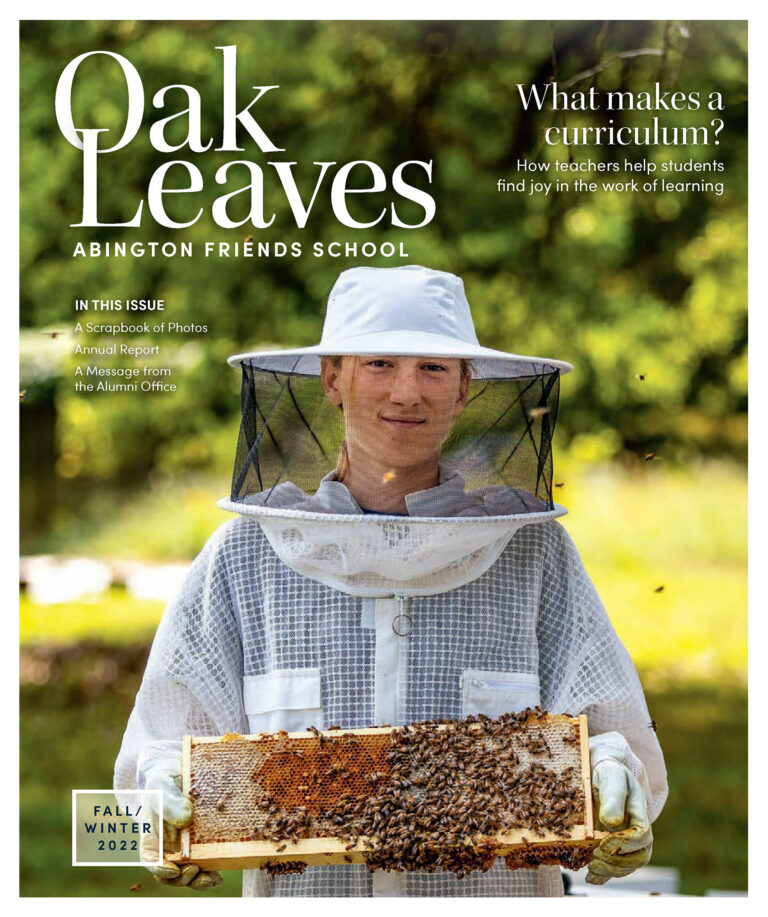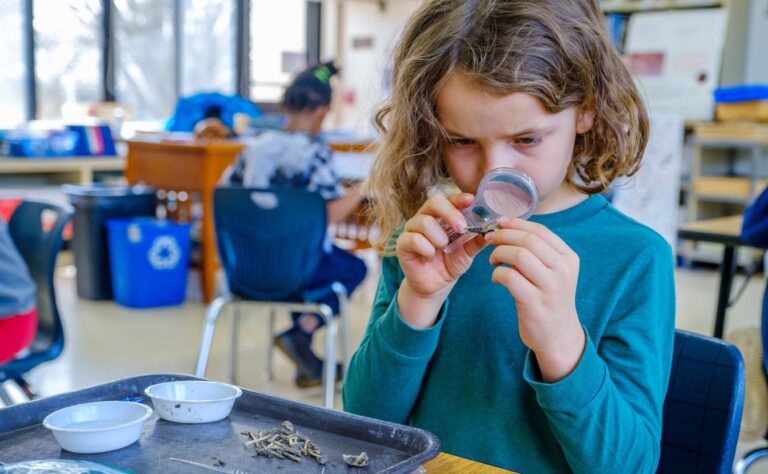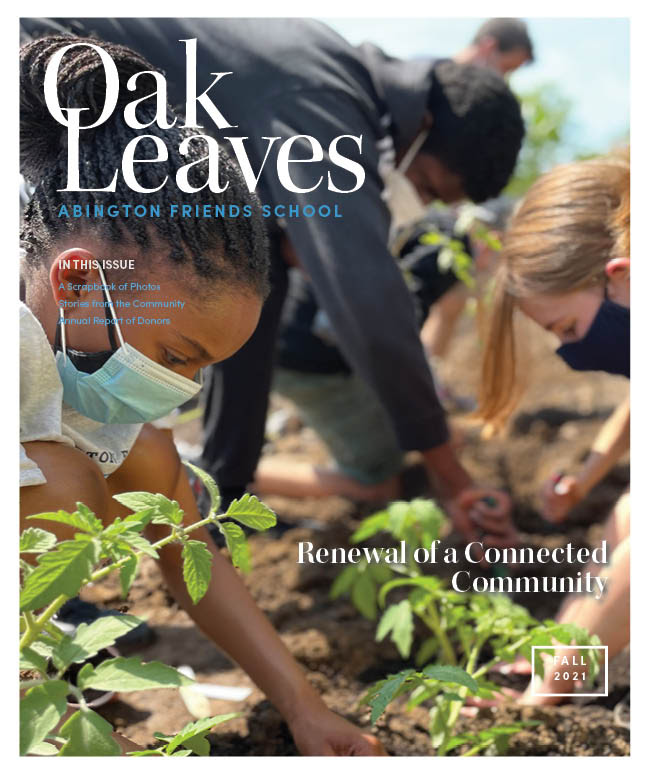Moving Across the Drape: Swapping Specialities in Medicine with Nisha Branch, MD, MPH ’96
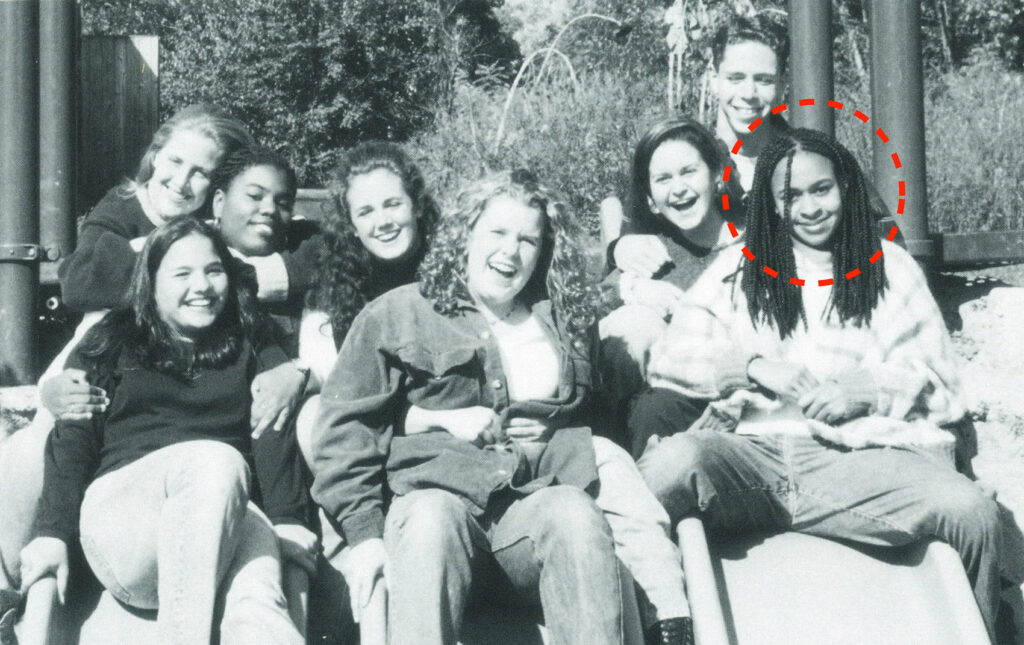
Nisha Branch ’96 can remember the first time she thought she might want to be a doctor—it was when she was dissecting a pig in her Middle School science lab.
“I really love animals, so I wanted to become a veterinarian,” says Nisha. “I thought the insides of those little animal bodies were extremely fascinating. But when I realized that euthanizing animals was a part of being a vet, I was really torn up about it. I figured that veterinary medicine probably wasn’t for me—no one would want their vet sobbing over their pets.”
Nisha was an Abington Friends School “super-lifer”—a self-designation meant to indicate that she and a group of her classmates had started in the (at the time new) pre-k. She had spent her whole primary and secondary education at AFS, as well as summers at AFS camp, giving her a unique perspective on the school.
“All along my path, what I really value about my time at AFS is that it gave me the space to explore my interests,” Nisha said. She got to try out different passions like medicine, music, language arts, and also assume leadership roles in organizations like PRIDE and her softball team. “I didn’t have to know immediately what I wanted to do. I could share ideas with my teachers Renee [Campbell] and Senora [Cindy Silverman], and they would respond with validation and freedom to explore them, but also constructive criticism. Not a lot of schools capture an environment that blends solid academics with a real focus on creativity and exploration.”
As it turns out, a career in medicine is all about exploration. While many doctors pursue specialties like internal medicine, neurology, or pediatrics, because of her love of sports. Nisha thought she might want to pursue sports medicine, so she found ways to try it out. While she was at The University of Virginia for her undergraduate degree, she worked for the football team and ended up shadowing the team physician, becoming more interested in athletes’ musculoskeletal injuries. That eventually led her to orthopedics.
(“At AFS, I loved our service projects at Habitat for Humanity, and that probably also lent itself to my interest in orthopedics,” says Nisha. “You know, I might have pretended they were bone saws.”)
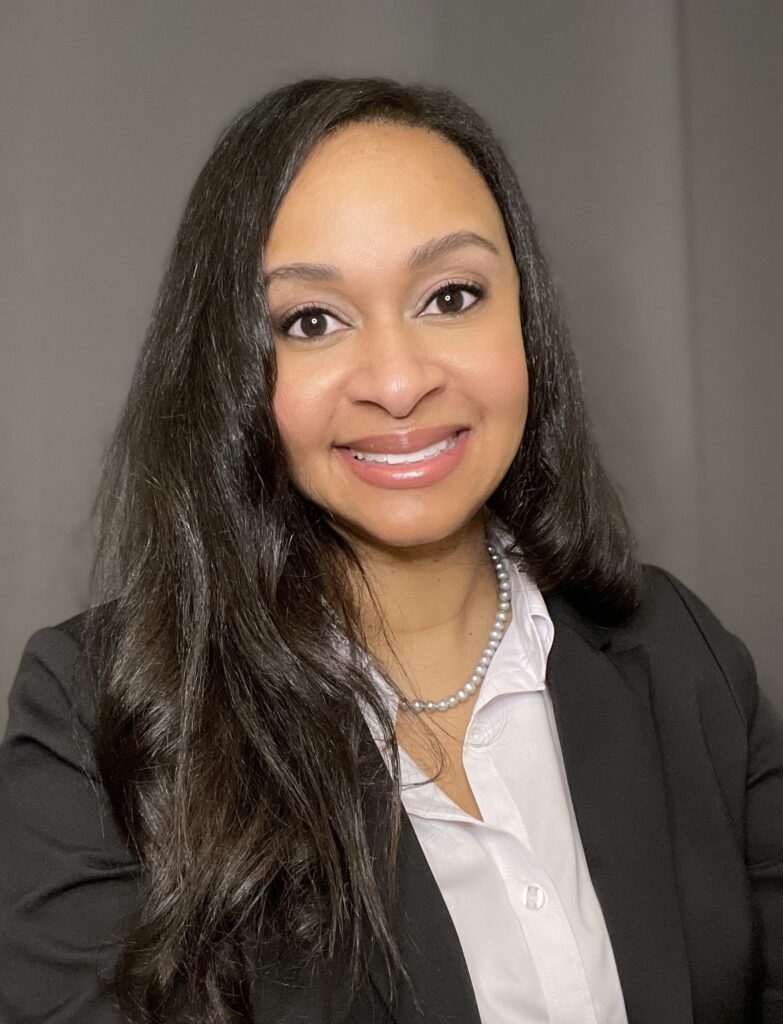
After getting her Master’s of Public Health at GWU, Nisha matriculated at Howard University College of Medicine because she wanted to make sure an HBCU was a part of her education. “Howard has graduated more Black physicians than any other school in the country,” says Nisha, “And it was an amazing experience that I hadn’t had up to that point: Being a part of a Black-majority educational environment.” Following her residency, she joined the Department of Orthopedics at New York Presbyterian in lower Manhattan in 2017.
Three years in, everything changed when COVID-19 stopped surgeries across the United States and turned every hospital into a COVID treatment facility.
“I enjoyed what I was doing, but after the first year of COVID I was exhausted,” explains Nisha. “I was experiencing physician burnout. I truly love orthopedics, but I needed to do something in medicine with better work-life balance.” So Nisha applied for an anesthesia residency, and she is currently a first-year resident again in anesthesiology at Temple University.
Changing fields to anesthesia—what surgeons refer to as the other side of the drape—is a big change, and one that comes with its fair share of challenges. It’s not common for people in medicine to change specialties, somewhat akin to a professional athlete changing sports from baseball to hockey. But just like being a super-lifer gave her a 360 degree look at what an AFS education looks like, being on both sides of the drape lets her see how best to interact with surgeons, anesthesiologists and patients alike.
“As an adult looking back, I know AFS played an important role in shaping me personally and professionally.”
Nisha Branch
“A patient’s condition can change very quickly,” says Nisha. “When they come in with, for example, blunt trauma from a car accident, surgeons work to stop bleeding and rely on the anesthesiologist to help stabilize the patient. Anesthesiologists use medications to balance the patient’s lack of awareness, pain control and other important variables during surgery. But certain medications can make their blood pressure drop, which is already happening because they’re losing blood. How do you balance everything? By adapting and communicating with the team, which is about listening and being heard. These situations really make me appreciate the importance of both sides of the drape.”
Navigating these intersections—between surgeons and anesthesiologists, between treatments and conditions, between work and home lives—are an important part of life for every medical professional. But Nisha knows that confronting challenges head on with consistent and proactive communication help her to be both a better patient advocate and a better doctor.
“AFS taught me a lot about how to interact with people from different backgrounds,” Nisha explains. “Diversity of interactions helps you to understand how people see the world, and that is so important in medicine. When I’m explaining something to my patients, I remind myself to drop the medical jargon. I say, ‘Let me know if this doesn’t make sense and I can explain it in another way.’ Everyone approaches situations from their perspective and level of understanding, which may differ from mine. So, I’ve learned to use a different vocabulary when speaking with patients versus other doctors, to ensure that I’m genuinely understood.”
Nisha credits her parents with imparting the value of flexibility, whether in pursuing her career path or adapting to different patients’ needs. “My parents always stressed the importance of education and service, and offered unwavering support and guidance throughout this journey,” Nisha reflects. “Their support gave me the confidence to pursue my dreams: It’s not just about adapting to what life has given you, it’s about affirmatively choosing the path you want to pursue. As an adult looking back, I know AFS also played an important role shaping me personally and professionally. So, my parent’s decision to select this school is a debt I can never repay.
“What you want to do might change over time—and that’s perfectly fine. You don’t have to commit to one thing for the rest of your life. AFS prepares you more than you think to navigate future challenges, and you don’t have to be a super-lifer to see that.”
